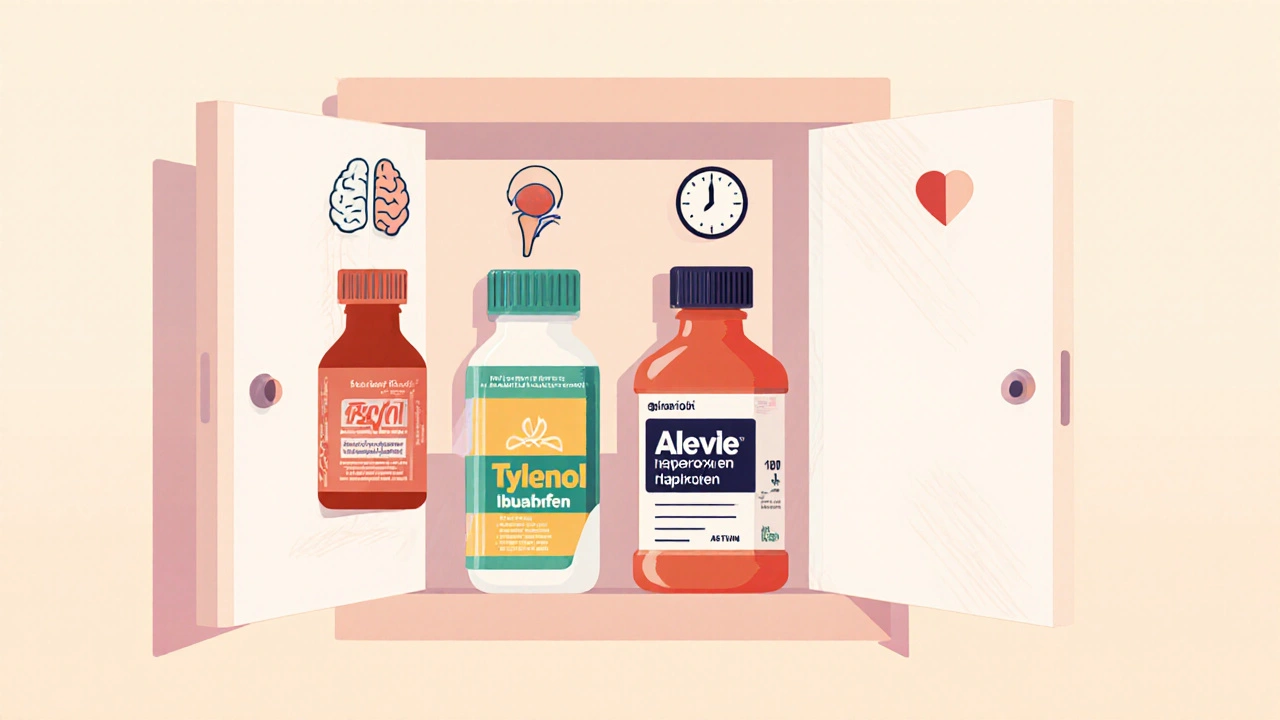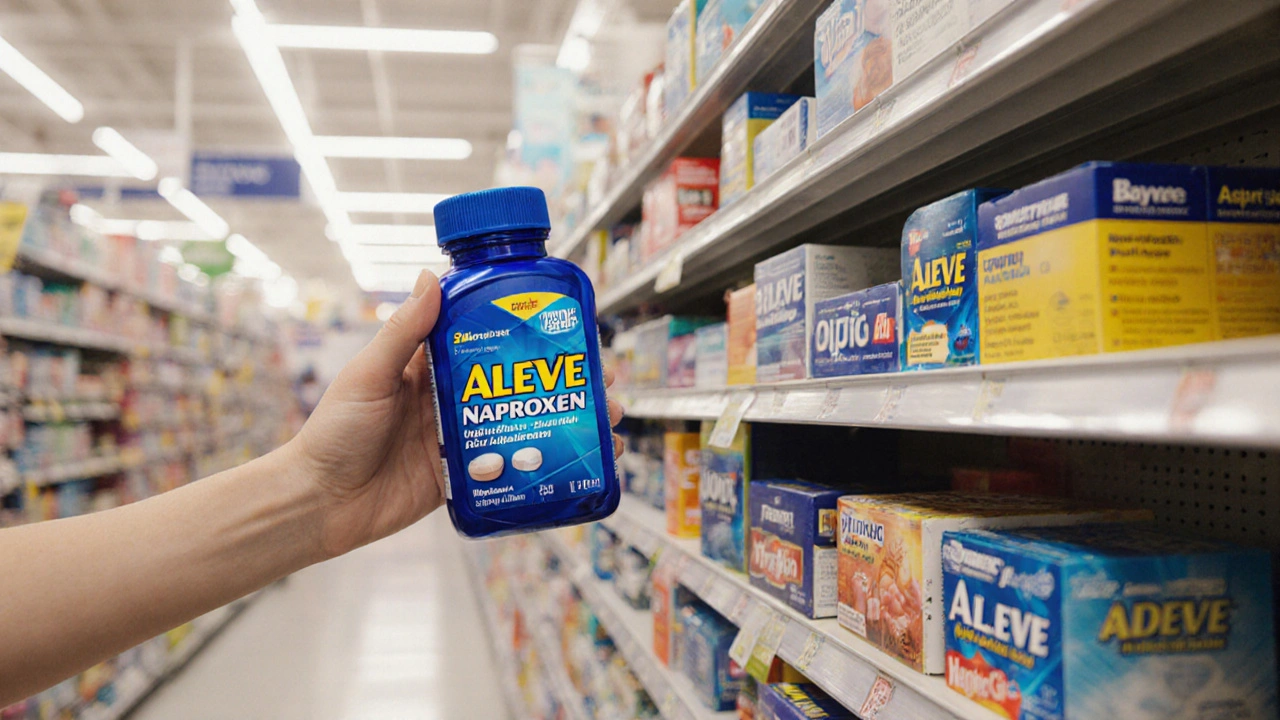Acetaminophen: Safe Use, Alternatives, and Buying Tips
When working with acetaminophen, an over‑the‑counter analgesic and antipyretic that eases mild to moderate pain and lowers fever. Also known as Tylenol, it’s a go‑to medicine for headaches, muscle aches, and colds. Many people wonder how it stacks up against Ibuprofen, a non‑steroidal anti‑inflammatory drug (NSAID) that also reduces inflammation or Naproxen, another NSAID used for longer‑lasting pain relief. While acetaminophen is gentle on the stomach, it can stress the liver, especially at high doses, leading to liver toxicity if you’re not careful.
Key things to know before you buy
First, dosage matters. The typical adult dose is 500‑1000 mg every 4‑6 hours, never exceeding 3000 mg in 24 hours unless your doctor says otherwise. That rule helps you avoid the liver toxicity risk we just mentioned. Second, look at the label for any hidden acetaminophen in combo products—cough syrups and cold tablets often contain it, and stacking them can push you over the limit.
Third, consider your medical history. If you have chronic liver disease, alcohol use, or take other hepatotoxic drugs, you might need a lower ceiling or switch to an NSAID like ibuprofen, which works differently and doesn’t strain the liver as much. However, NSAIDs can irritate the stomach or affect kidney function, so they’re not a universal fix.
Fourth, price and source. Generic acetaminophen tablets usually cost pennies per pill, but make sure you buy from a reputable pharmacy—online or brick‑and‑mortar. Check that the pharmacy is licensed, uses secure payment, and shows clear contact info. That way you dodge counterfeit products that could contain the wrong amount of the active ingredient.
Finally, timing with other meds matters. Acetaminophen can interact with blood thinners like warfarin, increasing bleeding risk, and with certain antiseizure drugs that speed up its clearance. If you’re on multiple prescriptions, a quick chat with your pharmacist can save you trouble.
All of these points—proper dosing, liver safety, alternative options, trustworthy sources, and drug interactions—form the core of safe acetaminophen use. Below you’ll find articles that break each piece down, from how to spot a legit online pharmacy to detailed comparisons with ibuprofen and naproxen, plus tips on managing fever in kids and adults without over‑dosing.
Ready to dive deeper? Explore the collection for practical guides, buying tips, and side‑by‑side drug comparisons that will help you make the best choice for pain relief and fever control.
Compare Tylenol (Acetaminophen) with Alternatives: What Works Best for Pain and Fever
Compare Tylenol (acetaminophen) with ibuprofen, naproxen, and aspirin to find the best pain and fever relief for your needs. Learn when to use each, their risks, and how to avoid dangerous mistakes.
Read MoreAleve (Naproxen) vs Other Pain Relievers: Detailed Comparison
A side‑by‑side review of Aleve (naproxen) versus ibuprofen, acetaminophen, aspirin and diclofenac, covering efficacy, safety, cost and best-use scenarios.
Read More

